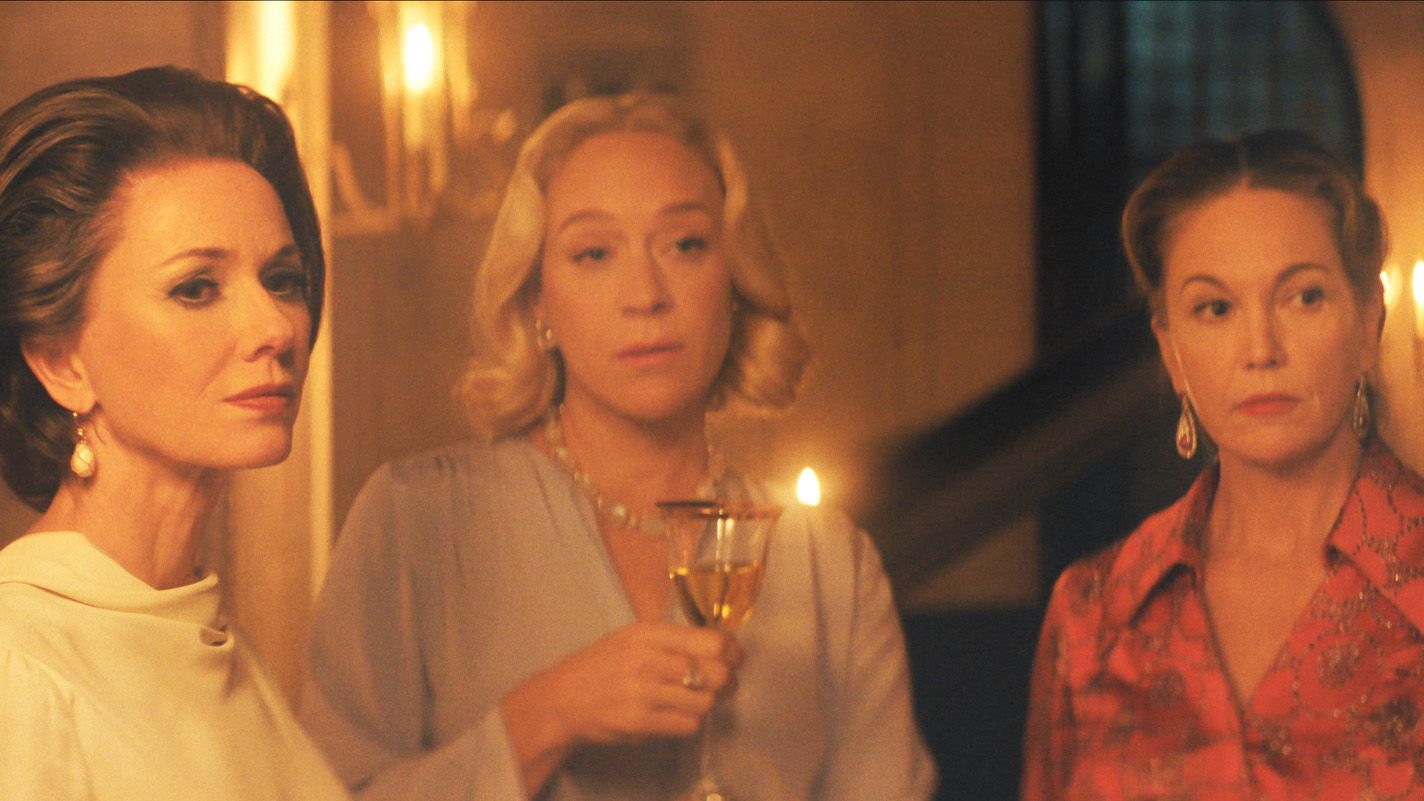The prospect of sitting through another Ryan Murphy-produced television show fills me with great trepidation. Not only is he an actual demon but, as I've been fond of referring to him online, he's basically white Tyler Perry. A man riding the thin line of hackery, in love with melodrama and obviousness to the point of overkill. And yet, the draw of his latest season of Feud, about Truman Capote and his relationship with his high society "swans" proved to be too much to resist for a philistine like me.
For backstory: In 1975 Truman Capote, spiraling down after his intense success of In Cold Blood, published an excerpt from his allegedly forthcoming novel Answered Prayers in Esquire that was a very thinly veiled reportage of a number of rich and famous New York society women and their powerful, cheating husbands. The fallout was immense and marked the end of Capote, more or less. The book was never finished before he died in 1984. In 2021, Laurence Leamer wrote about the whole messy saga in his book Capote's Women, which the Feud: Capote Vs. The Swans is based on.
It's a rich, gossipy story. The kind of piece where a Murphy production should excel. But even from episode one, there's plenty to already roll your eyes at. From the very obvious prologue of a weathered, older Truman Capote looking out at swans paddling in a lake, to Tom Hollander's exaggerated performance of the writer's slide to alcoholism. And yet, there's still a lot to enjoy about this show, much of it due to the women and the actresses bringing them to life: Diane Lane as Slim Keith, Chloë Sevigny as C.Z. Guest, Demi Moore as Ann Woodward, and most especially, Naomi Watts as Babe Paley. The other bright spot is in Gus Van Sant's direction, a brilliant filmmaker who can't get a movie for some damn reason, but does great work within the confines of this soap opera and its bad color correction editing.
The first episode contains a lot of recreations of infamous stories Capote told regarding the women: Ann Woodward (allegedly) killing her husband and Bill Paley getting caught cheating on his wife with Happy Rockefeller through a bloody mess she left behind in their bed. The second episode mostly deals around the immediate fallout of the excerpt first being printed in Esquire and the swans freezing Capote out of their circle. That is a lot of words to describe 1970s New York high society drama, where the greatest consequence someone faced was probably losing their reserved table at Le Cirque. Why anyone should care about any of this, though, is more dependent on your penchant for gossip and drama surrounding wealthy adults. The show doesn't try to pretend that these women live interesting lives, even as it tries to humanize them. It's truly specific to a kind of viewer that would either know this story already or be interested in the glamour and tawdriness of the whole affair.
The show is more interesting than not, but it's also full of a lot of attempts to psychoanalyze people that nobody involved with this actually knew. Ultimately interrogating the inner lives of these people doesn't matter for the purpose of this exercise. But the idea of Truman Capote, half serious author, half con man working his way into the highest inner circles of New York power, is as much a modern story and the ways in which people accumulate worth today. But only two episodes in, the binding concept of the personal vs. professional, and whether Truman's act was for the sake of art or the act of self-destruction, is the strongest reason to keep watching. That, and the old-money costuming of the various women, particularly personal favorite actress Chloë Sevigny as Guest. It's a captivating lifestyle, even if it's a silly and pointless one.
Correction (7:50 p.m. ET): Truman Capote accused Ann Woodward of killing her husband, not Ann-Margret.






